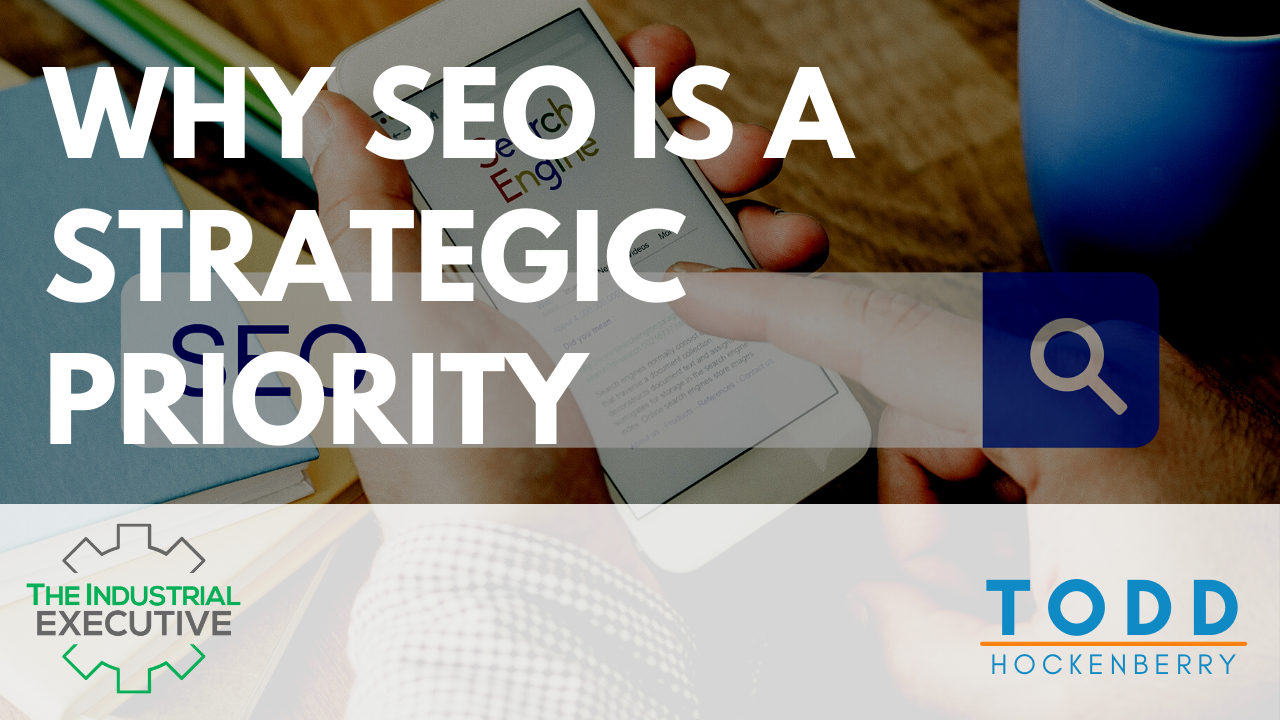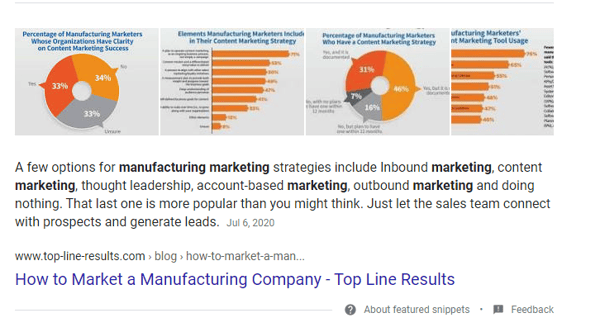Posted by Todd Hockenberry ● Jul 12, 2022
Why SEO is a strategic priority
How many CEOs think about search engine optimization (SEO)?
How often does SEO show up on the agenda of a board meeting? In a business strategy development session?

Contrary to the common clickbait idea that SEO is dead, SEO is more important than ever.
CEOs and other business executives ignore the impact of SEO at their competitive peril.
What is the purpose of your website?
The twofold purpose of your website is still the same as it has always been - to build credibility for your business and to generate interest that results in engagement with target prospects and relevant stakeholders.
The goal of your website-building effort is to get found, be helpful, drive deeper engagement, and ultimately help you convert prospects into leads and help them with your solutions.
SEO is the process of optimizing your website and online content so that search engines display your website and other online content when a searcher types in a search query that matches your content.
SEO is increasingly becoming more about driving engagement as well. We will get into this in future posts in this series but one example of engagement driving SEO is the Google update that increases the ranking of websites that show a higher time on site by visitors. Longer time on site, with more page views, equates to higher ranking thus the connection to SEO
Search engines are in the business of answering searchers’ questions and delivering them the information they think the searcher is looking for. Sometimes, that means giving them the answer on the search results page and not requiring any further action by the searcher.
You have all seen featured snippets like this one below. This is one we earned for the search topics 'manufacturing marketing' and 'how to market a manufacturing company'.

Sounds like a technical job for the folks in marketing and maybe even IT, right? Yes, there are technical aspects to SEO that we got right on this blog post to get it to rank but more importantly, we planned strategically to rank for this post for specific business reasons driven by our goal of helping manufacturers market their companies better.
So why is SEO a strategic imperative for a CEO?
Why do SEO vs. how to do SEO
Lots of articles tell people about the tactics of doing SEO but few tell you why you should do it and the strategic implications of well-done SEO.
In my book Inbound Organization, we wrote this:
“Technology is going to continue to improve the ability of companies to connect to more people who want a more personal level of service. If you have a product-based or an internally based mindset, the distance between what you’re doing and what people expect will dramatically increase.”
The key point is that all buyers want an ever more personal experience when they research, consider, and choose products and services to buy.
This desire, this need, this insistence on personalized experiences is true regardless of B2C or B2B, small business or large, or vertical market, or anything,
So how does SEO connect to buyers wanting a more personal, human, customized buying experience?
SEO forces a customer-first perspective
SEO work forces you to think about customer experience from their point of view. You have to get out of your own head and the internal noise about what people think buyers want and really dig in and understand what the buyer actually wants and what their true intent is when they search for information.
“Understanding your marketplace, ideal buyer persona, the questions they ask, the issues they need help with, the questions that they don’t ask—and wrapping them up and delivering a superior experience—creates true differentiation and long-term customer loyalty.”
Inbound Organization, Wiley 2018
Creating a valuable customer experience is the only differentiation available in a world of global competition, Internet connection to multiple alternatives, and vanishing buyer loyalty.
SEO requires you to think about whom you help and how you help them
SEO imposes market discipline on your strategy efforts.
To attract, educate, and engage ideal buyers you need to have an in-depth understanding of them and their issues and how you ultimately help them.
These are CEO and board-level questions.
- What markets do we want to focus on?
- What products and services do we develop?
- Where do we invest our research and development budgets?
- How do we staff our teams?
- How will we help our future customers?
- How do they view our brand and compare us to the alternatives?
To properly develop a successful SEO strategy you need to understand these and many other factors.
If your business has not answered these questions then SEO becomes just a function of the basics which means a product-focused, inward-looking website that is never what your ideal prospect is searching to find.
Your only option without thinking through SEO is to optimize your site for your business name, location, and products. Which is a recipe for mediocre results at best and most likely guarantees your online irrelevance.
As my co-author, Dan Tyre likes to say, “The riches are in the niches.”
If you try to be something for everyone online in your vertical market you will end up being nothing to the prospects that really matter to your strategic success.
This is the first in a series of articles where I will dig into the strategic implications of SEO.
Topics: Inbound Organization, Marketing, SEO





